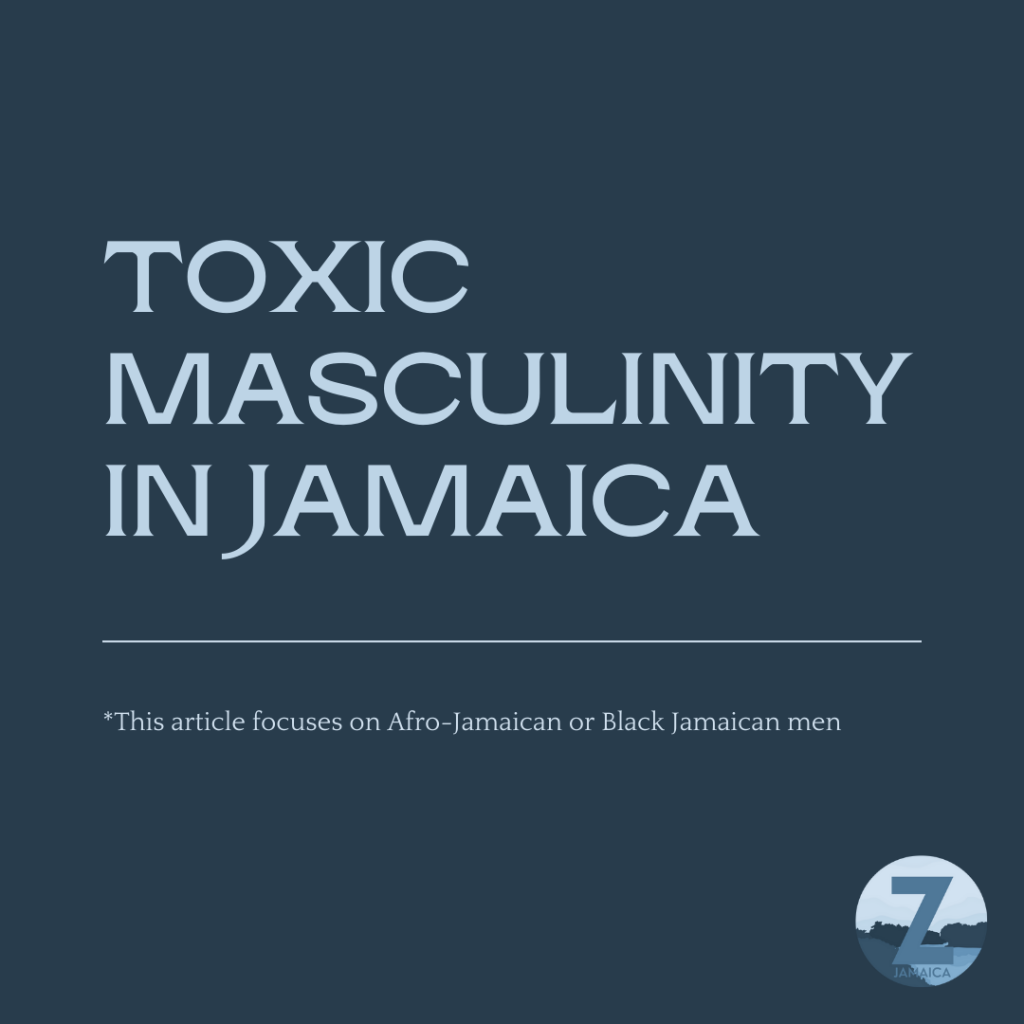by Levi (Destiny) Johnson | January 31, 2022
This article focuses on Afro-Jamaican or Black Jamaican men
In every aspect of Jamaican society and culture, toxic masculinity can be found. It can be said that men “live for other men”, as all, or most. of what they do is seen as being done in the hopes of validation from their male counterparts.
What is toxic masculinity?
Masculinity, in the western sense, is the concept of the “big, strong man”. A masculine man is expected to be rough, stern, and completely separate from vulnerable emotions or emotional states. It is the bottling up and pushing down of any “non-masculine” characteristics, and the embracing of “manly” and “macho” traits.
Toxic masculinity is, in simple terms, the societal pressure men face to be as “masculine” as possible (or hyper-masculine) in the public and private eye. In other terms, it’s feeling pressured (consciously or unconsciously) to only portray the parts of you that are socially accepted—and that show or boast your masculinity—in keeping with being a man.
Toxic masculinity, among other social issues, has its roots set in colonialism. During the slavery period, enslaved men used to be publicly humiliated by way of emasculation through “buck-breaking”. Buck-breaking is the act of forced anal penetration (sexual assault) that was performed in order to be a fear-based psychological tactic to make the enslaved people submit to the plantation owners. In today’s society, men are constantly pushed to be the most “masculine” version of themselves—stemming from the unexplained generational trauma passed down.
Toxic Masculinity and General Society
Jamaican society’s stance on toxic masculinity disadvantages men and boys in more ways than one. This colonial mindset or ideology, as seen above, can lead to the decline in the mental wellness of males as well as aid the continuation of unspoken sexual abuse.
Some disadvantages males face due to toxic views of masculinity:
- exclusion from the law in the case of sexual assault
- extreme societal pressure to be more masculine
- mental detriment from lack of emotional expression
- stifling and lack of exploration of “non-masculine” characteristics possessed
- being silenced about issues out of fear of being humiliated or laughed at
The toxic views on who males “should be”, also affect them in terms of their career path or choice. Not all men want to work in male-dominant fields—or fields that are “for men”. Some men are drawn towards more female-dominated fields—or fields dubbed “for women”—like being a hairdresser, a makeup artist, a fashion designer, or a nurse. The majority of men, however, who are interested in these fields tend to steer clear of them out of fear of being ridiculed, harassed, laughed at, or attacked—or being seen as “gay”. Unfortunately, society has made settling for a job that you dislike, a safer choice than living dreams or doing what you love.
One’s career choice is not decided by their sexuality or gender identity. Males should not need to stifle themselves and their interests just to fit into the classification society set for them. So much more greatness could be achieved in these industries and careers with the inclusion and acceptance of these men.
Some men can’t even dress how they want to. Not only speaking to the more “feminine” males, but the sexuality of a well-dressed man is always called to question in Jamaican society. Men who clean up themselves too well are immediately dubbed as being “feminine” and—you guessed it—“gay”. This gives the idea that a “masculine” man should be viewed as rugged and “rough” at all times. And this is not at all true, as dress—like career choice—has nothing to do with sexuality, masculinity or gender identity.
Why Jamaican Men Live for Other Men
Due to this masculine standard in society, men have developed the need for validation from their male counterparts.
Most times, this constant need for male validation pushes Jamaican men to “act out of character” or do things they wouldn’t normally do. The most common societal form of “men living for other men” can be seen in the instance where men cheat on their partners in order to either be dubbed a “gyalis” or to impress their male friends who are doing the same. In other instances, you have men who humiliate persons or other groups of persons to gain reputation points from their male friends, and look cool in their eyes.
Regardless of the reason, this constant drive for male validation is also the very thing they speak down on and shun—yet they practice it without realising it.


Leave a comment